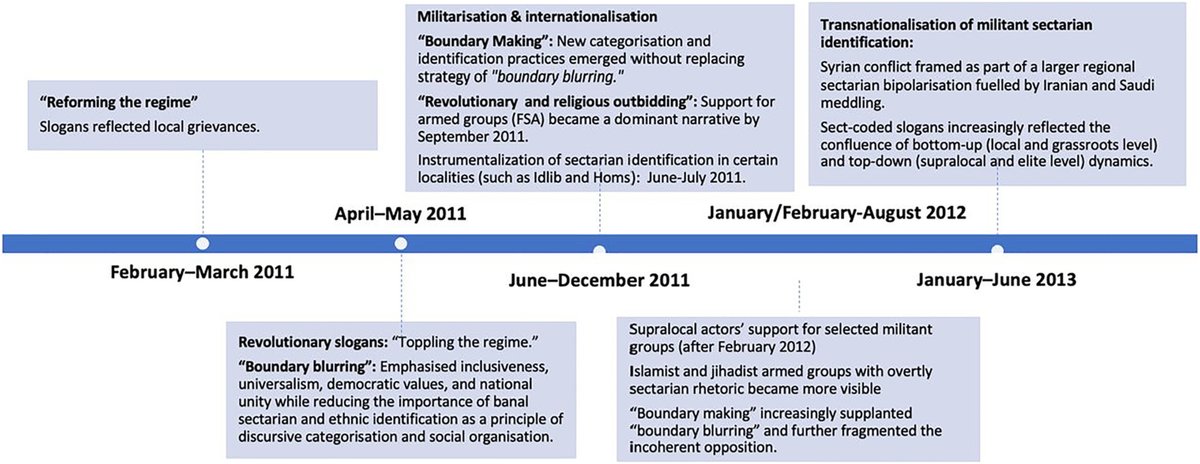
🚨New Pub🚨
Coincidentally my article was published in @n_nationalism on the 11th anniversary of the #SyrianRevolution
It took a lot of work & revisions to finally get it out. It simultaneously evokes beautiful & painful memories about the greatest political event in my life🧵1/6
Coincidentally my article was published in @n_nationalism on the 11th anniversary of the #SyrianRevolution
It took a lot of work & revisions to finally get it out. It simultaneously evokes beautiful & painful memories about the greatest political event in my life🧵1/6

This article traces the discursive re-articulation of the sectarian narratives as part of the meaning-making processes in the context of the Syrian uprising's first 3 years and the country's devolution into civil war. It criticizes using groupist terms and reifying practices 2/6
Specifically, it traces how local and supralocal activists' reactions to the regime's brutal violence and its master narrative culminated in the activation and politicization of the category of ‘sect’ as a residual sociality (Lisa Wedeen's (2019)+Raymond Williams's (1977)) 3/6
I argue that at a critical juncture (Arab Spring),the alliance between local and supralocal actors & the struggle over representation & symbolic power shape, and is shaped by, strategies of boundary making (such as sectarianization) &violence against challengers on the ground 4/6
I analyze 1)the Asad regime's master narrative, which framed the uprising as a conspiracy aimed at stirring up sectarian discord (Fitna);2) explicate the dynamics of social boundary-making among Syrian activists as they developed chronologically in response to regime violence 5/6 

This article uses an interpretivist approach and draws on:1)ethnographic observations & weekly meetings w activists in Damascus during the Syrian uprising until 31 July 2012; (2) 27 interviews with #Syrian activists (3) a discourse and content analysis of ‘Fridays' slogans’ 6/6
This is the Online Version of Record before inclusion in an issue (Open Access thanks to a generous grant from Carnegie and LSE based project Legitimacy and citizenship in the Arab world research project): onlinelibrary.wiley.com/doi/10.1111/na…
• • •
Missing some Tweet in this thread? You can try to
force a refresh





